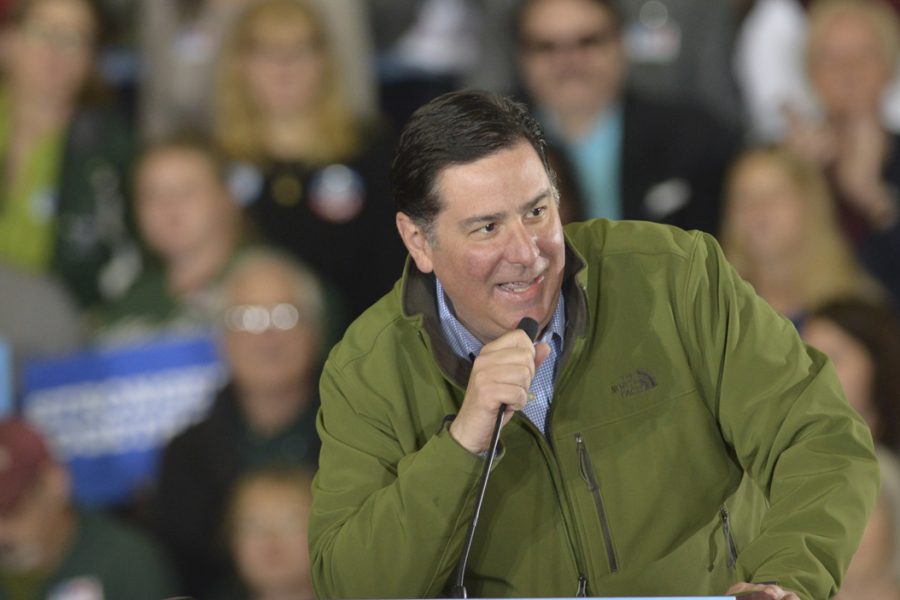With the onslaught of President Donald Trump’s controversial executive orders during his first month in office, it may be easy to forget about local politicians who can likewise implement executive orders.
Mayor Bill Peduto signed five into law Tuesday and Wednesday this week in order to take more immediate action on the affordable housing crisis plaguing Pittsburgh.
Peduto’s actions are commendable for highlighting his commitment to promoting housing for all Pittsburgh citizens, but there’s more to do. The affordable housing trust fund, created in December 2016 to finance changes in city housing, still lacks viable funding options, meaning the executive orders will see little tangible benefits for Pittsburgh’s communities. For Peduto’s orders to translate into real change, the city and the task force need to find the funds necessary to help people keep and afford their homes.
The city council passed the legislation creating an affordable housing trust fund late last year on the recommendation of the Affordable Housing Task Force, a group established in May 2015 to hold meetings and offer solutions for housing issues throughout the city. The legislation set the goal of depositing $10 million annually for the city’s housing but have yet to come up with a way to raise the funds.
One option for the funding is an increase in the city’s realty transfer tax, a tax levied by the city for buying and selling real estate, by 1 percent — a controversial choice as Pittsburgh residents already pay the highest transfer tax in Allegheny county at 4 percent. Other potential options include increasing wage taxes or mileage rates. Either way, if the city wants to commit to this important issue, and it should, the city first needs to find the money somewhere.
Peduto’s orders come from over 40 recommendations by the task force in May. The choice to use an executive order, instead of legislation passed through the county council, was meant to highlight the need for internal changes in city departments and agencies, Kyle Chintalapalli, deputy chief development officer, and Alex Pazuchanics, policy coordinator for the mayor, told The Pitt News.
The first two orders, issued Tuesday, focus on providing and expanding resources for housing security and increasing opportunities for public housing to residents. The last three orders, issued Wednesday, aim to protect existing and expand future opportunities for mixed-income housing.
“A number of the projects can move forward without funding,” said Pazuchanics, referring to internal policy and practice changes departments can make.
But, without funding, tangible changes will be hard to come by. Furthermore, the executive orders are unlike legislation because they don’t inherently focus on changing conditions in the community right now. The orders are merely the representation of the task force’s recommendations on how to improve decision and policy-making within city agencies, explained Pazuchanics.
We should be wary of what this means. Changing the city’s approach to affordable housing from the inside is surely a crucial step in tackling the root causes of the issue. But we must see the benefits of it in our communities, as well, before the orders are considered a success. And the way to do that is to finance real projects, not just release executive orders.
“[The orders] didn’t fully address the real source of Pittsburgh’s and other cities’ housing crises, which is the commodification of housing,” said Jackie Smith, professor of sociology at Pitt and faculty fellow for the 2016 Housing Summit at the University last November, in an email.
Although Pittsburgh is often described as a livable city, this label fails to take into account the city’s history. Gentrification in neighborhoods throughout the city, such as East Liberty and the Lower Hill District, has been ongoing for years. Most recently, in the case of the Penn Plaza Apartments, more than 200 residents were sent notices to move out of their affordable housing so the developer could build more high-end housing. The plans are currently halted but not before the residents were forced to vacate their homes.
With the Democratic primary for the next mayoral election coming up in three months, and two opponents to Peduto already declared, it’s important to consider Peduto’s plans in the lens of his re-election bid. Because Pittsburgh is developing quickly, becoming a technological hub and a hot spot for commercial development, affordable housing should be a key issue on any elected official’s platform.
“We need to push public officials to make serious financial commitments to prevent more residents from losing their homes,” Smith said.
We agree.


